the british empire - the development of imperialism - issues in britain & informal empire
1/56
There's no tags or description
Looks like no tags are added yet.
Name | Mastery | Learn | Test | Matching | Spaced |
|---|
No study sessions yet.
57 Terms
What was the British government’s approach to imperialism like before 1870?
Before 1870, the government had no decisive stance
Why did the British government have no decisive stance on imperialism before 1870?
limitations due to technology - only telegraphs & letters could be used to communicate this meant that the government couldn’t pass information etc to the companies which were stationed 1000s of miles away
the British government felt they were in a stable position in commercial strength as they had defeated the colonial ambitions of France, Germany etc
belief in Free Trade - anti-interventionism meant that governments didn’t want to interfere in famine in India etc as they would create moral hazard and so inhibit free markets
What were the Conservative attitudes to imperialism like before 1870?
1852 - Disraeli believed "those wretched colonies will all be independent in a few years and they are all a mill-stone around our necks.’’ (1852).
aka the empire is destined to fail and is another unneeded burden on Britain
What were the Liberal attitudes to imperialism like before 1870?
Gladstone promised to "abstain from any territorial acquisition"
He also appointed Ripon as Viceroy of India when he became PM and Ripon gave the local govs more power & reduced censorship.
aka the Liberal party hasn’t been expansionist for a very long time and in this time isn’t imperialist either
What government actions show that there was no decisive approach to imperialist before 1870?
In 1865, the Parliamentary Select Committee recommended Britain withdraw from its West African settlements. This was because they were considered too costly.
What were governmental attitudes to imperialism like from the 1870s onwards?
The British government adopts more imperialist policies - a shift from their lack of policies and even anti-imperialist sentiments.
Why was there a shift in governmental attitudes to imperialism from the 1870s onwards?
imperialist ambitions of other European powers - Britain needs to respond to this and the associated economic competition
the Long Depression - started in the 1870s -80s and meant that foreign export markets were needed/more attractive in order to improve economically
protectionist tariffs in Europe & America - mean exporting manufactured good is difficult there so a need for other markets opens
increased poor conduct of the individual chartered companies forcing intervention or taking control of protectorates - more central governance & control is needed e.g. EIC
When & why were chartered companies “revived” (3)?
They weren’t a new concept and were even popular in the 1850s/60s but revived in the 1880s
This was due to the Long Depression in 1873
There was a threat of loss of British economic supremacy which made the government want to become more involved to extend British trade
What was the Swing to the East & the effect on charted companies?
Swing to the East - increased colonisation & focus on the East - Asia & Africa
This influenced which companies gained charters and where they could be located e.g. The North Borneo Trading Company was established to gain more control in the South China sea.
What were Britain’s policies regarding trade?
Mercantilism - Colonies would sell their produce to Britain and buy manufactured goods
Free Trade - Abandoned protectionism due to Adam Smiths influence
Britain then used its navy to defend this - Gunboat diplomacy
Why did Britain trade so much with its colonies?
Between 1870-1914 40% of British investment abroad went to imperial territories
1879 - Germany introduces tariffs
1881 - France introduces tariffs
Britain needed to use its colonies to support its industry
What was the height of British commercial power?
1870 - GNP was higher than that of Russia and China combined
Merchant fleet carried half the world’s sea borne trade
What was the purpose of a chartered company?
To make profits for the shareholders - but as the government was involved as well as private merchants they allowed for colonial expansion - for profit & power.
What were chartered companies?
An association with investors or shareholders that is incorporated & granted rights (often exclusive ones) by royal charter (or a similar governmental instrument) for the purpose of trade, exploration or colonisation or a combination of all.
Which years was Disraeli Prime Minister?
. 1868
2. 1874 - 1880
Which years was Gladstone Prime Minister?
1. 1868 - 1875
2. 1880 - 1885
3. 1886
4. 1892 - 1894
What were Disraeli’s policies/beliefs surrounding empire?
Accused Gladstone of wishing to break up Empire, through inappropriate measures of self-government, which would lead to irresponsibility, negligence and abandonment
Used Empire to underpin values of Conservative party
What were Diseraelis main policy objectives and some actions he took to achieve them?
Expanding territory
1877- annexed the Transvaal expanding territory in S.A
1879 - Anglo-Zulu War & eventual gain of Zululand - expansion of British territory in S.A.
Consolidating empire/securing trade interests
1875 - he purchased a 44% stake in the Suez Canal - protects pathways to India & maintains control over routes to India
1877-8 - supported Ottoman Empire against Russia & prevented Russia gaining territory too close to colonies - secured trading interests in the region
2nd Afghan war - consolidated trade & control in India
Limiting other (European) powers
Annexing of Transvaal intensifies the rivalry with the Dutch
Interactions with Russia via Afghan war & Ottoman empire intensifies great power rivalries starting to form
What imperialist actions did Gladstone take?
Est. British Protectorate in Egypt, to protect interest in Suez Canal
(1884 - 5) British involvement in Berlin Conference, creating order amongst powers over ‘Scramble for Africa
Gladstone was reluctant with both of these as he didn’t intend/want to expand empire - he wanted to consolidate what there already was of empire.
What imperialist losses did Gladstone face?
(1881) First Boer War - defeat at Majuba, restoration of independence to Transvaal
Sending General Gordon for evacuation of Egyptian garrison from Khartoum - tried to defend city & died = Gladstone received backlash
What imperialist losses did Disraeli face?
1879) British Military defeated by Zulus at Isandhlwana
(1879-80) Unsuccessful British campaign in Afghanistan
How did Disraeli's government react to crisis/ opportunities?
Claimed Credit for work set in place by Gladstone, but fully completed under his term
To deal with Russian interest in expansion, he used Military action, which continued during Gladstone's return to power
Aimed to develop commercial and strategic Empire, focusing on the East, linking imperial and foreign policies
What were the major issues in UK politics in this time period?
Ireland: Should Ireland remain part of the United Kingdom of Britain and Ireland or become a more independent country?
Labour Rights: Should workers be given more rights (e.g. less working hours,holidays etc.) or not?
The British Empire: Should Britain continue to expand its Empire or not?
Free Trade vs Protectionism: Should Britain trade without tariffs or should it put taxes on incoming products from other countries?
Overall what did UK politics look like during this period?
There were two main parties:
The Liberal Party, which was led for most of this period by Gladstone. He supported Irish Home Rule (where Ireland have their own government), increased labour rights, a moral imperialism with no further expansion of the Empire and free trade.
The Conservative Party, which was led for most of this period by Disraeli. He opposed any greater Irish independence and supported some very moderate labour reforms. He was a passionate imperialist, who also believed in protectionism.
What were Gladstone’s policies surrounding empire?
Considered Britain's empire as satiated & main concerns should be over home affairs
Outspoken & critical of Disraeli’s approach to imperialism & undermining of constitutional system within Britain
Viewed Imperialism as positive, as it allowed the potential for their to be a larger community of sovereign states
He championed free trade
known for his moral earnestness - wanted more moral empire
What were voting rights like at the start of this period?
You had to be an adult (21).
You had to be male.
You had to own your own home or rent a property worth more than £10 a year.
Limited enfranchisement.
How were people influenced about empire?
Newspapers
Literature
Schools and youth groups
Work of Charles Darwin
Imperial Exhibitions
How did newspapers influence peoples opinions of Empire?
through the reporting in the growing popular press, which saw the value of stories of the erotic, heroism & national one-upmanship.
e.g. The British public feeling horrified by stories of massacres and tortures at Cawnpore, Reporting of Arabi Pasha’s revolt in Egypt
the figures in these stories also become martyr figures/imperialist hero that add to the atmosphere of hero-worship in imperialism in this time
How did literature influence peoples opinions of Empire?
through celebration & promotion of different aspects of Empire to its readers which helped reinforce the Victorian idea of British benevolence & superiority & the idea of empire as a civilising force creating at times a sense of moral duty about empire
e.g. H. Rider Haggard; King Solomon's mines, She, The Boy's Own Paper
these stories were very popular especially ones of explorers & missionaries by the 1870s - David Livingstones letters add to this & Livingstone becomes a ‘celebrity’
How did schools & youth groups influence people’s opinions of Empire?
Urging readers to lead ‘manly & Christian lives’, similar to rhetoric in school books, clubs & associations by reinforcing imperialist values - many stories appealed to younger readers
e.g. Boys own paper, Boys brigade
How did Social Darwinism influence people’s opinions of Empire?
through the Origin of Species; people alluded that Natural Selection to also apply to human races, unintentionally reinforcing views of white (British) supremacy creating the pseudo scientific idea of Social Darwinism
e.g. Origin of Species (linked w/ disappearance of ‘weaker’ races; Maori, Aborigines, American Indians)
How did Imperial Exhibitions influence people’s opinion’s of Empire?
by reinforcing ideas of Victorian society’s physical & social superiority; through promotion and practical demonstration of industrial development, technology and arts/ wealth occuring within Empire
intrigued people with displays of people & animals from colonies e.g. Sudan in the 1877 one,
e.g. 1862 International Exhibition, 1886 Colonial & Indian Exhibition, 1890 African Exhibition
1890 African Exhibition - made up of traders, gov officals, missionaries & scientific groups & appeared to justify the British presence in Africa
What was the British public’s attitude to empire like in 1858-1890?
It was varied - there was an overall pro-imperialist opinion from the majority of British people but to some extend many people didn’t really know or care about empire.
Popularity of imperialist literature & positive reporting in the news shows that people did care about empire but the fact that there was an insistence on Victorian society’s superiority shown through the many imperial exhibitions done shows that not everyone always cared.
People who were indirectly effected by empire - in cotton factories didn’t always know this connection until something endangered it e.g. cotton famine so didn’t care or know especially as the people who were most involved in empire/imperialist didn’t live in Britain.
There’s also the fact that not everyone could access certain imperial things - exhibitions were held in London and were aimed to the rich - literature e.g. Livingstone’s lectures at Oxford could only be accessed by a small portion of the public.
Many couldn’t vote on imperial matters as they couldn’t vote in general.
What % of Britain's imports and exports went to/came from the Empire?
In the 3rd quarter of the 19th century, around 20% of Britain's imports came from its colonies
Meanwhile the Empire provided a market for 1/3 of British exports
When was the Long Depression?
1873-1896
What was informal empire?
Areas influenced if not controlled by the British via deals with local rulers. Influence was through both economy and spreading of British customs/culture (idea of soft power).
What was China like as part of Britain’s informal empire?
China became part of Britain’s informal empire through the trade in opium where the British profited heavily from the opium trade while China suffered from the addictions caused.
The British used gunboat diplomacy to protect their interests by infiltrating foreign policy - Opium Wars.
By the 1870s, Britain was responsible for 75% of China's overseas trade
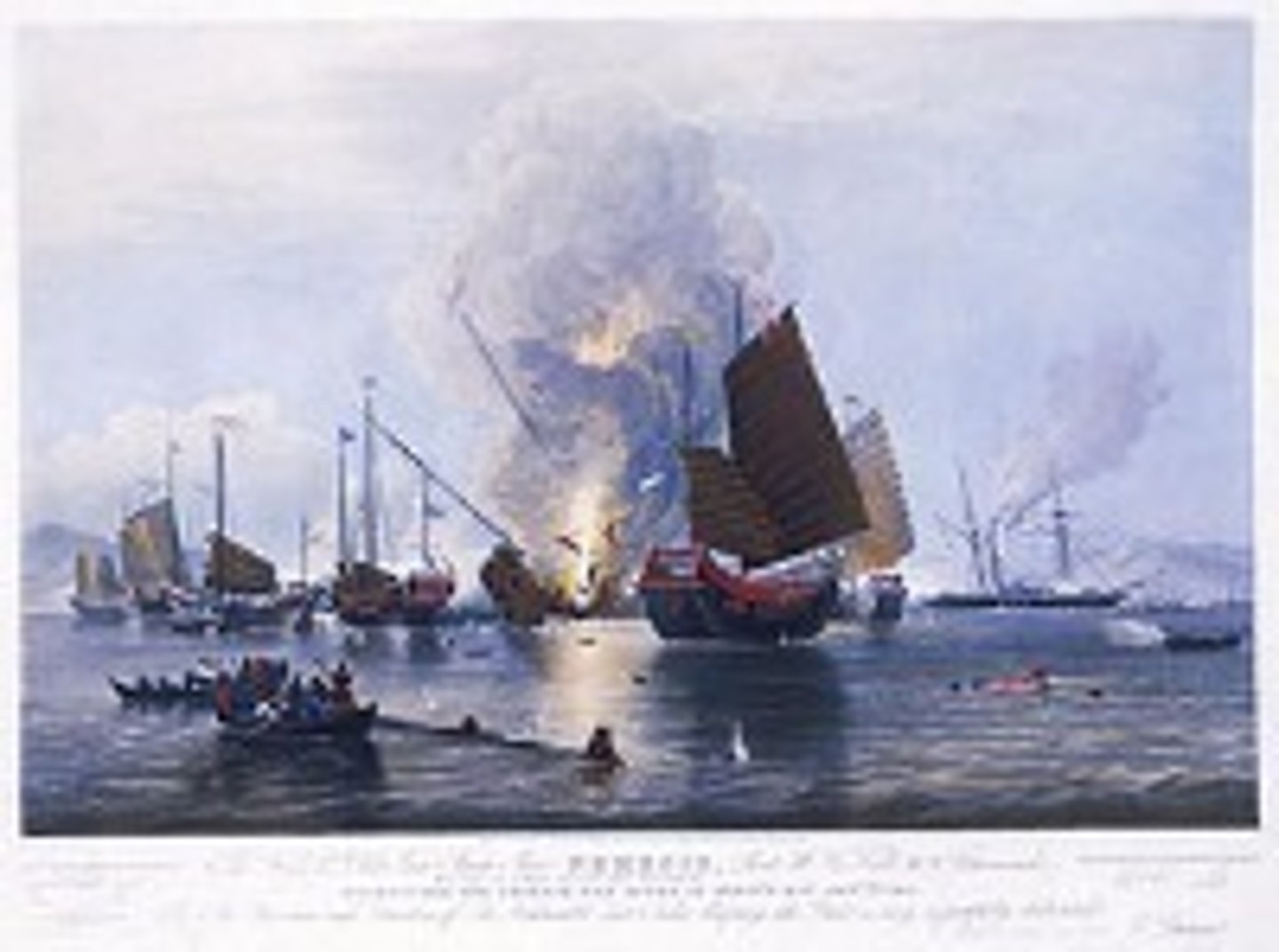
What was gunboat diplomacy?
The use of force - navy & army etc - to protect trading interests.
What was the imperialism of free trade?
A form of imperialism where a powerful nation uses economic influence rather than direct political control to dominate weaker countries.
—> Britain does this to gain control over its informal empire by making weaker countries follow free trade which tended to benefit Britain’s trade dominance
What were the Opium Wars?
Conflicts between the British & China - Britain want to continue exploiting China via opium trade - importance of informal empire & shows they were willing to use force.
First Opium War - 1839-1842 - they secured the Treaty of Nanking (1842), which opened 5 ports to British merchants and gave them Hong Kong
Second Opium War - 1856 - 1860 - Britain acquired Kowloon and another 5 ports
What was the impact of informal empire?
Overall it was highly beneficial for the British as they gained huge profits from their informal empire which they could use to fund the Industrial Revolution in Britain & fund infrastructure in their formal colonies.
They could make these huge profits without governmental responsibility so in some ways it was better for Britain - however lack of governmental control meant they still had to compete with the local governments.
What was Latin America like as part of Britain’s informal empire?
In Latin America - Argentina & Chile specifically - Britain was heavily influential through its involvement in the economy.
Latin America brought in £80 million in 1865
Charles Morrison created the Mercantile Bank of the River Plate in Argentina in 1881 and invested directly into the countries utilities
Pressured Mexico in 1861 to keep access and free trade open
Royal Navy threatened Peru and Chile in 1957 and 1863
By the second half of the 19th century, Latin America accounted for 10% of Britain's trade
What were the ships and shipping used to facilitate British trade and maximize profit?
Clippers became popular after the Treaty of Nanking in 1842 as they were fast and suited to carry high-value low-volume goods like opium (only had a short life expectancy of 20yrs though)
Steamships, which were better suited to carrying large bulky items, were also considerably developed in the 1850s, and their travel time between Britain and W Africa was reduced to less than 3 weeks
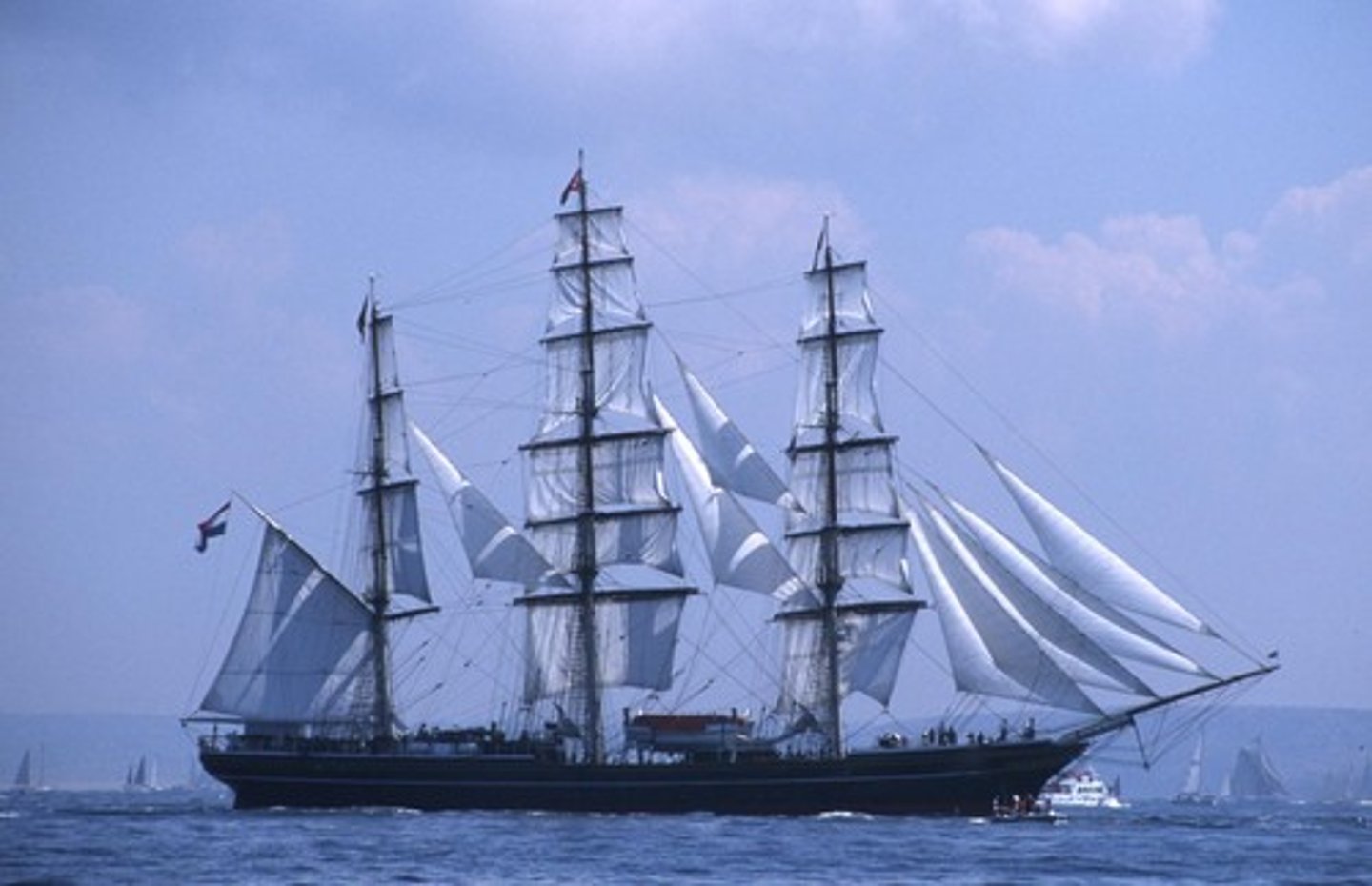
How were railways used in the British Empire?
Railways were the largest single investment of the period of self governing settler colonies - Canada, New Zealand etc.
There they opened up new areas, enabled export & allowed for expansion further in
In India - railways were built with a strategic purpose in mind but they also linked the cotton and jute-growing areas of the north with the mills of Bombay and Calcutta
In less Westernized areas such as W Africa, railways provided the vital link between the interior and the sea
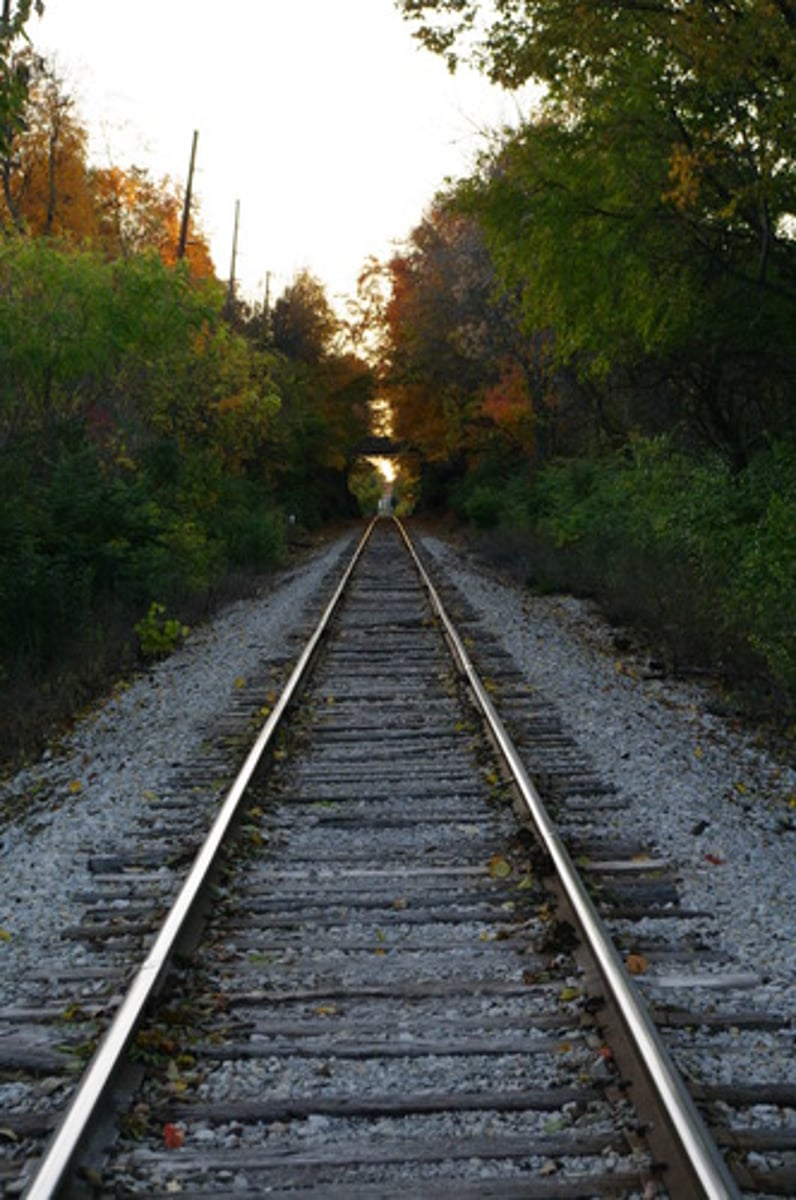
What were the effects of the railways on the indigenous people / colonies?
Encroached upon indigenous lands
Disrupted long-standing ecologies & communities
Often led to displacement and forced removal of native peoples
What was railway imperialism?
The building of railways in British colonies which was key to economic development as it ensured British control. They did this by providing the engineers & investment etc which could be used to pressurise the colonies governments.
Why were railways in the colonies so beneficial to Britain?
Railways became a trading commodity in their own right which could be profited off of as the British funded the railways, controlled the tech & supplied all the equipment.
The investment in railways provided invisible trade - provision of service or investment overseas and facilitated commercial enterprise.
How were canals & rivers part of the infrastructure of the British Empire?
Important for means of transport of trade & the focus of explorers quests to expand into the interior of Africa.
Rivers sometimes had to be deepened or straightened, and elsewhere canals might be built to avoid hazardous stretches of water to facilitate trade.
In Canada after 1867, canals were deepened around the St Lawrence/Great Lakes seaway system
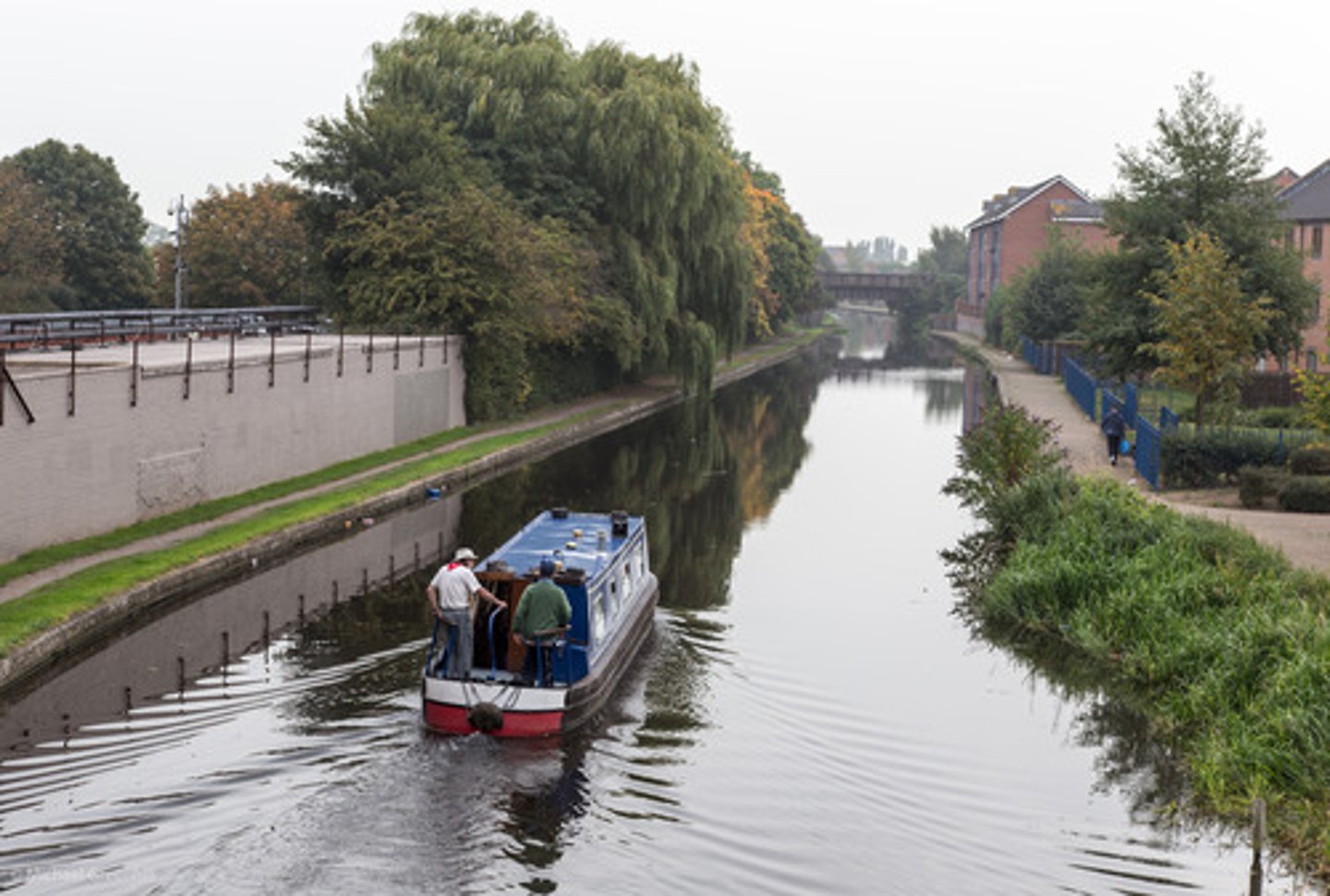
What were the different types of agriculture in different British colonies?
Cheap foodstuffs and raw materials like wool from Canada, Australia and NZ
Sugar, coffee, cocoa. palm oil etc from the tropical colonies like SA
Tea from India (particularly from Darjeeling). Tea became the most popular drink amongst Britons
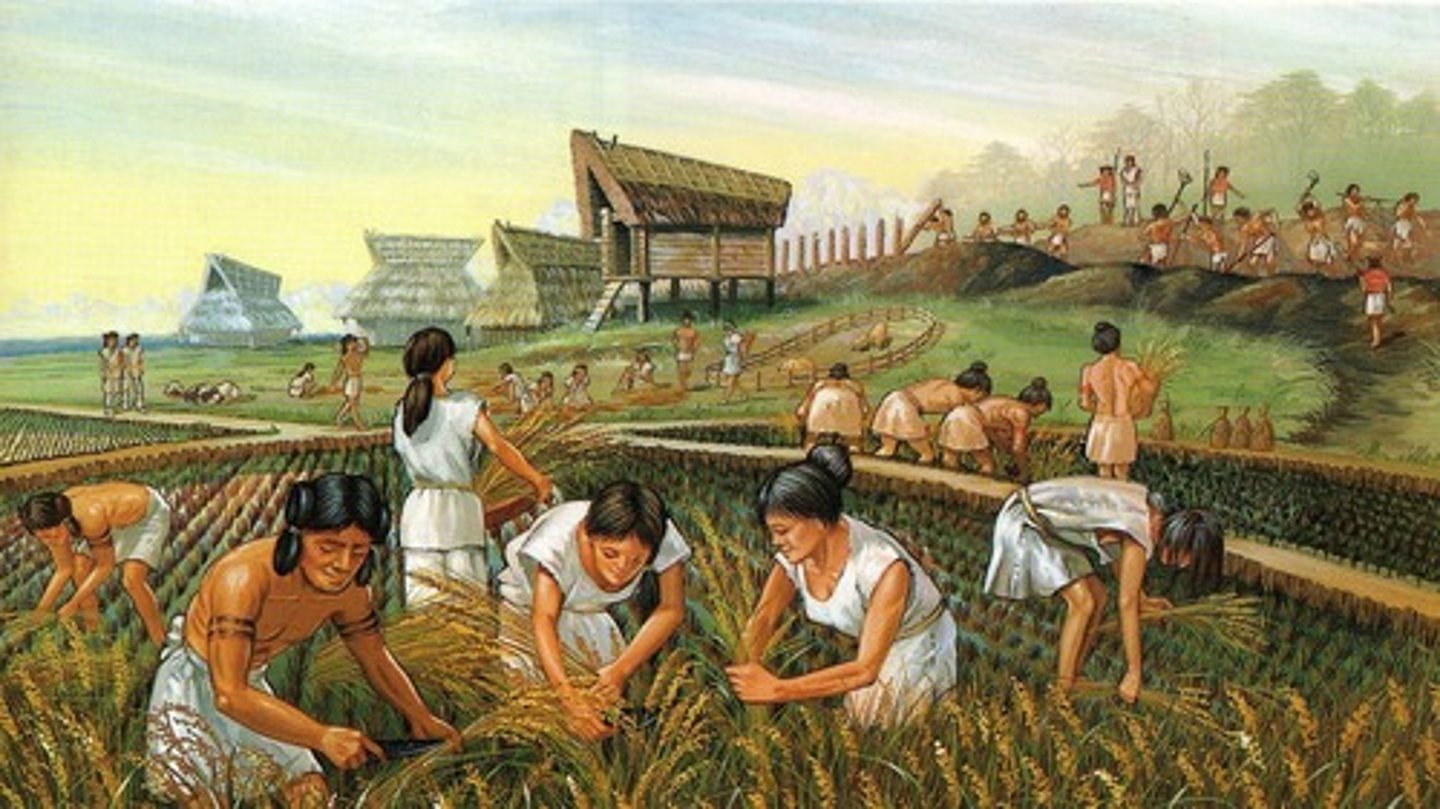
Why was trading agriculture with its colonies beneficial to Britain?
New Zealand, Canada & Austrailia produced goods which were avaliable from Europe but at a cheaper cost
Production in tropical colonies e.g. SAfrica was small-scale often an addition to local subsistence farming farming so the farmers felt obliged to sell at whatever price they were offered - Britain could exploit them
What were the products of trade & commerce in the British Empire - mining?
The want to exploit precious metals was a leading motivation for European expansion & directly fueled expansion in Nigeria(tin), Gold Coast (gold duh) & Sierra Leone (diamonds).
Gold gained the most attention & was found on the Witwatersrand in SA in 1886, which prompted a gold rush and the migration of over 30,000 Cornish miners
Diamonds discovered in Griqualand West in 1867
Gold was also found in Victoria, Australia, and at one point it was producing around £125 million - a third of the total world production (however ran dry in the 1860s)
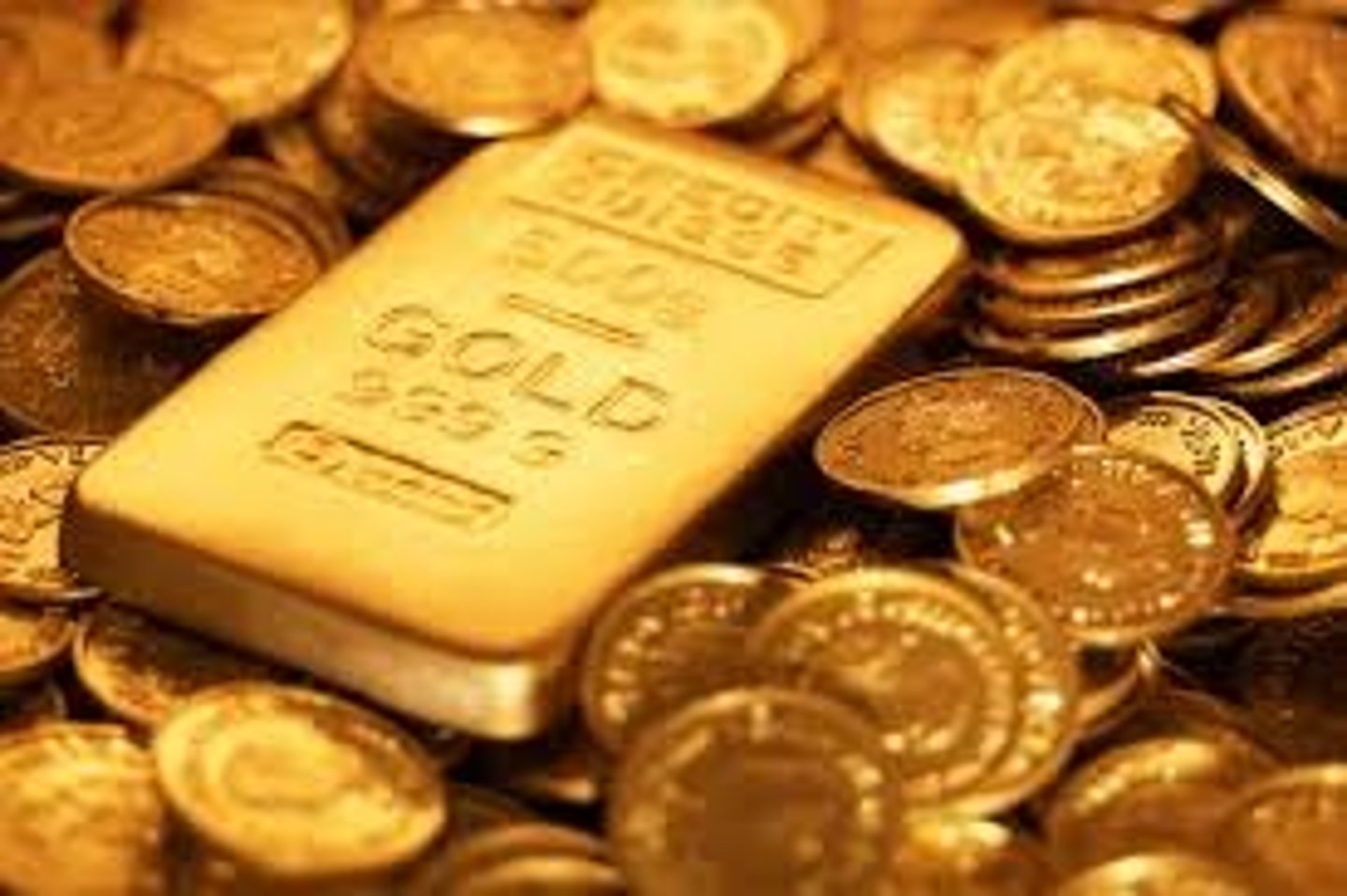
What was the effect of British trading on local colonial industry?
There was limited development of industry in the colonies, partly as the colonial markets would not be able to compete in a world market with British manufacture &there were only small internal markets.
For example in India - Indian run textile mills couldn’t compete with British imported textiles leading to the collapse of the Indian textile industry.
What were the effects of British trade & commerce to its colonies?
Underdeveloped areas were propelled to modernize via British investment & tech
Independent economic development twas curbed by the Britain controlled & exploited their colonies
Why did British colonies want to trade with Britain (to the extent that they had the choice to)?
Partly out of a sense of loyalty/duty
Mainly because it was easier:
trading patterns were well established
the countries of the empire shared a common language for commerce
common system of commercial law imposed by Britain
How did Britain respond to the French activity in Indo China?
They matched its expansionism by annexing territory and extending beyond its existing base in Singapore - upper Burma 1885, north Borneo 1881, Brunei 1885
What happened in the invasion of Afghanistan 1878?
Invasion launched in November 1878 in an attempt to turn India's neighbour into a client state and because the Emir of Afghanistan accepted a Russian envoy but refused to accept a British one
Nearly 10,000 British-Indian troops died before eventual victory in 1879 - Afghanistan become a protectorate
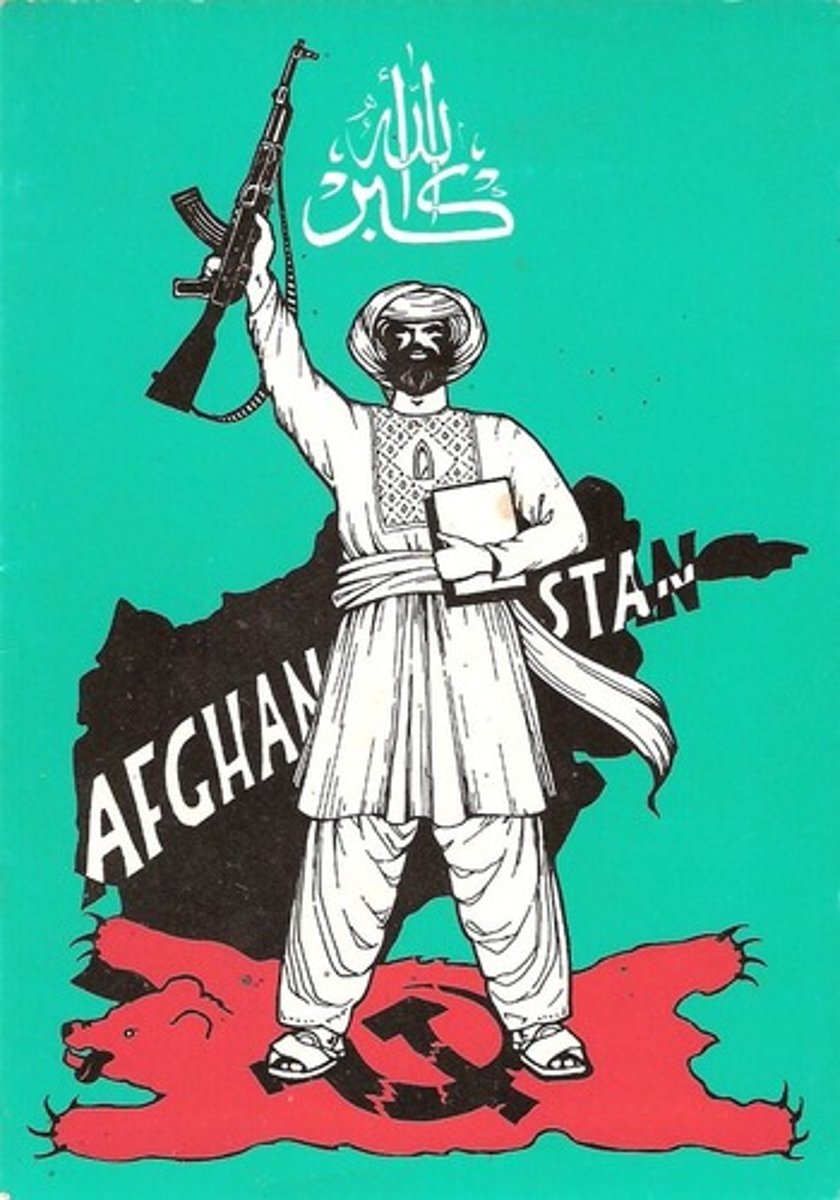
Wars with the natives in SAfrica?
Xhosa War 1877-1878 - Disarmed tribesmen and annexed their territory to the Cape
Zulu War - Invasion of Zulu land in 1879 and defeat of Zulus at Ulundi in 1879